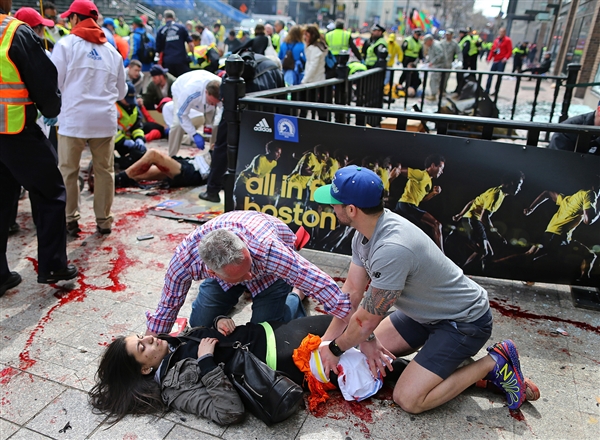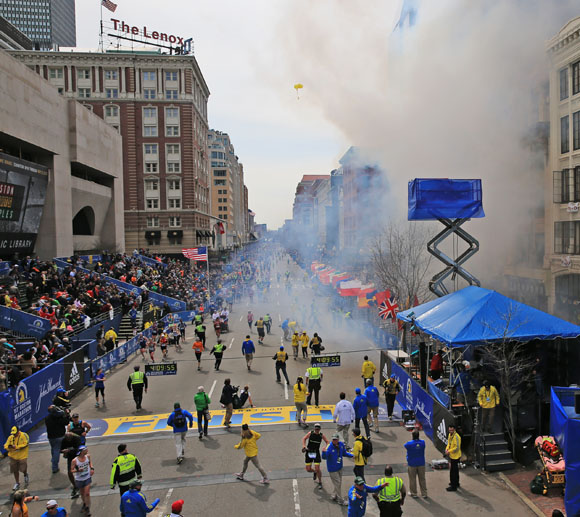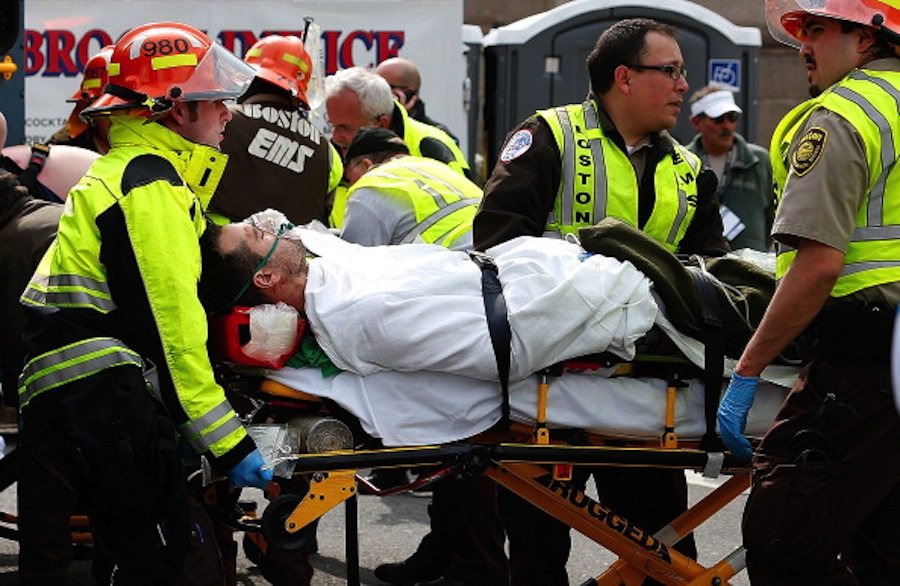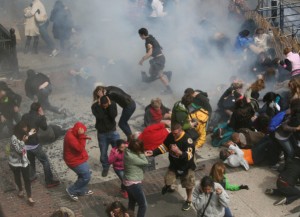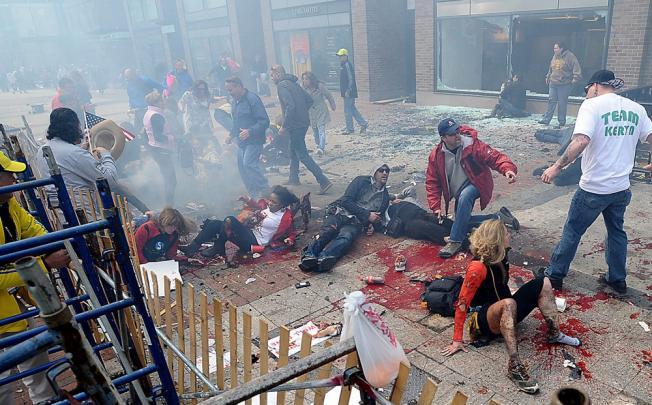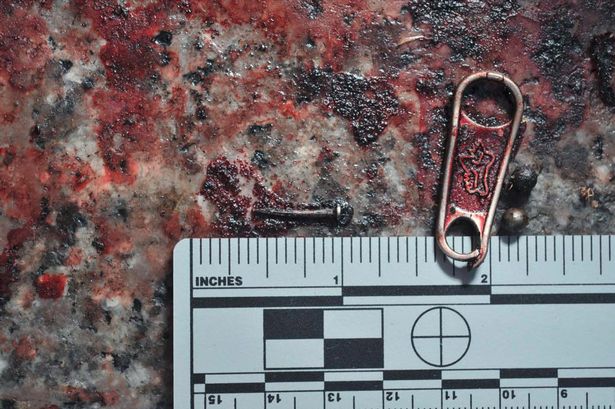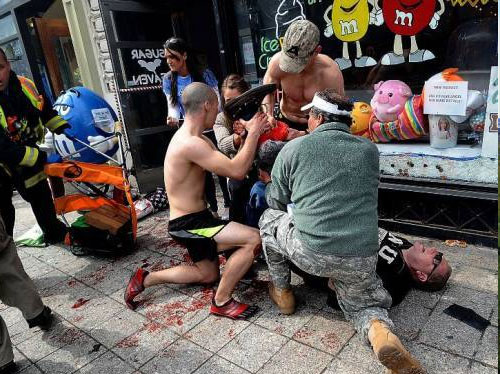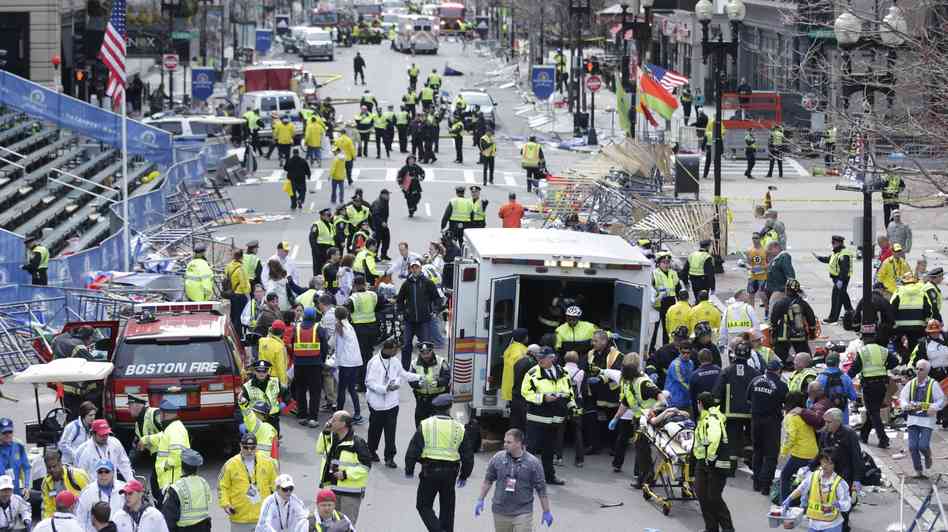I am writing this on the morning after the Boston bombings, so much will be uncovered in the days between this writing and publication. But, this column is not about the who and why of the Boston bombings. It’s about the role Social Media plays in our lives today and how empathy and grief come to bear during these events. It’s also about why we must teach our children well to care about others and reach out in tough times to those in need.
Note: Please listen to or download our special radio show, The Boston Bombings and Our Kids, in which Dr. Weberman offers excellent tips for parents about how to handle such an issue with our kids, and we hear from Pastor Drew Sams with a spiritual viewpoint, and Cheryly LeBon giving a political perspective.
Monday morning I received a text from my older son that he was okay. He’s a freshman at The Berklee College of Music in Boston. It was the first I’d heard of the bombs that went off at the Boston Marathon. Later, as I was watching the news non-stop, I reflected on how grateful I was that my son had texted me since cell-phone use was supposedly blocked for a while during the unfolding of these tragic events. Social Media played a big role in disseminating information in those early chaotic moments. But, the bigger picture remains unknown.
This blog series endeavors to educate and reflect on the effects of Social Media in our lives and my belief in Social Media equaling Social Good. Of course, not every interaction in Social Media can or should be about Social Good, but I believe that is the higher purpose we can choose to bring to our online endeavors. The tragic events in Boston only reinforced these feelings in me.
Did you see all the video and photos of people in Boston, as the events unfolded, reaching out to loved ones via their cell-phones? What amazing instant information we were able to receive. Now, literally every event – especially one as well covered as The Boston Marathon – will get instant coverage. There will be video and photos available almost exactly in real-time.
I still marvel at the video footage and still photographs that were revealed in the immediate fall-out and days after 9/11. Of course, some were horrific, but they helped us understand this cataclysmic event. Twelve years later, these tools are more ubiquitous and therefore we have gotten even more “coverage” of the unfolding events in Boston.
One of our tasks as parents in this instant-information age is monitoring the information that our kids receive. This is a whole other discussion in and off itself, but given that both my boys texted me within moments of this news breaking, I’m sure most kids were getting information very quickly about what was happening in Boston. My younger son immediately texted me to ask if I’d heard from his brother.
Consequently, our parental job is much changed. Knowing that our kids will largely hear and see about anything going on in the world requires that we know when and if they need to reflect and talk about it with us. Smaller tragedies like the sudden death of a celebrity have impact, too. There are lessons from all these events for all of us, especially our children.
The biggest lesson for our kids is to understand and display empathy. Empathy is an emotion and behavior that too many young people don’t employ because their lives are naturally very self-centered, even more so during the teen years. Modeling concern for others, helping in pro-active ways, are two things we parents can do that will begin to teach our children empathy and doing good in the world. They do go hand-in-hand.
We read and hear – through Social Media and more traditional mainstream media outlets – of the heroics of our first responders. We read and hear about people sending money and reaching out to help in monetary and/or time commitment fashion. We must teach our kids to care about their world above and beyond the narrow confines of themselves. It doesn’t hurt us either, to care or act on helping others out at all!
Note: On Thursday, April 18, my older son told me more about what had happened to him on that Monday. He and a college friend had decided to go to watch the finish of the Boston Marathon. On the way there, they stopped for coffee. There was a long line and it took a while to get their drinks. They then headed to the finish line, passing people who told them about the bombs that had gone off just a few minutes prior. Bombs that the boys may have been in the midst of had they not chosen to stop for those coffees. Serendipity?

